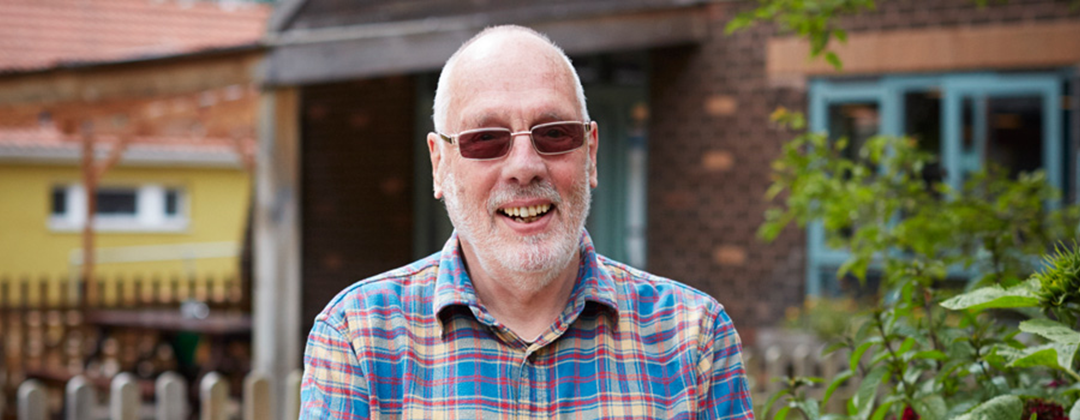Bettering Bedminster

How can the citizens of Bristol improve the cleanliness of our streets?
Ramona Andrews meets activist Ben Barker, who believes that it can start with something as simple as a cup of tea with your neighbour.
‘… there are two ways to keep the street clean. One is to pay someone to pick it up and the other is don’t drop it in the first place.’
I’m with Bedminster community activist Ben Barker, listening to advice given to him by his mum when he was a kid – advice that sticks with him now in his role in various community organisations across South Bristol.
Ben and I have met for a coffee at Windmill Hill City Farm, which is celebrating its 40th anniversary in 2016. For Ben, meeting for a chat over a cuppa is at the heart of his work in the local community. He sees the question of dealing with waste as largely about relationships between neighbours.
Waste as an economic development issue
After retiring as a lecturer 20 years ago, Ben became deeply involved as a volunteer with organisations in the local area. He was behind the application for the Mary Portas Fund in 2012 that awarded Greater Bedminster £100,000, to rejuvenate its shopping areas, along with 11 other English high streets. The idea for the application started with a coffee and a chat with George Grace at the Southville Centre.
From that came the Bedminster Business Improvement District (formerly Bedminster Town Team). Businesses of Bedminster pay about 1.5% on top of their business rate and the money goes towards improving the streets and their attractiveness, which encourages footfall and dwell-time. “Dwell-time is the amount of time that a customer spends within the vicinity of the shops. So you have to make the place attractive. Are there places to sit down, go for a coffee?”
“Recycling was clearly a problem. It’s still a problem, but less than it was,” he says. Before starting to put in flower boxes or artwork, recycling needed to be looked at. They negotiated a waste contract that worked for all the businesses in the area, rather than having separate contracts for each business.
The smaller businesses’ one-off contracts and therefore huge bins were an eye-sore, took up space in narrow Victorian streets and often smelled in the summer. Now the aim is for streets to become more of a “social space rather than storage place”.
Recycling and street access
When waste causes streets to be used as storage, there are implications for people with disabilities. Those with eye-sight issues, mobility problems, or even people just pushing a buggy, may go elsewhere if the streets are blocked with large bins.
The Royal National Institute for the Blind, who have a headquarters just off Bedminster Parade, have been working on a national programme addressing obstacles in the street called “Who put that there!”.
Cup of tea and a chat
Collaboration is more than just businesses clubbing together. “It’s about neighbours talking to each other and making the place look better, and then putting the bin away becomes part of that. A social expectation”.
It’s about neighbours talking to each other and making the place look better, and then putting the bin away becomes part of that. A social expectation
Out of this philosophy came the Good Garden Awards, now in its 14th year, which gives a certificate to a garden or frontage where someone has taken the trouble to make it enjoyable for others.
After meeting Ben, I was taking my children to one of the Playing Out street play sessions down the road in Bedminster. This is another project close to Ben’s heart. “It creates that opportunity for people to talk to each other and think of their neighbours as real people and to have conversations like ‘see that bit of crappy land over there, why don’t we turn it into a community garden?’ or ‘we could put a painting up on that wall’.”
Another issue the partnership have been looking at is social isolation among older people. They call it ‘the cup of tea question’. If a friend came to stay, where would you take them for a cup of tea?
“Now if you live just off North Street, it’s not a problem. But if you live in some other areas, you have to get on a bus to go elsewhere. So there are places where people can easily meet and can have the sort of conversations like ‘you seem to be having trouble taking your bin upstairs. Can I help you?’ Where that’s not possible, that’s when it’s difficult.”
Growing communities
As we come to the end of our drinks and conversation, Ben points out how the city farm is an exemplar of what we’ve talked about. “This was a bomb site, a place to leave rubbish. There were people on the hill that came down and looked at this site and had a vision. This could be a place for trees and kids and pigs, rather than the lorry park that the council had in mind.”
Ben calls it “community imagination, realising that there’s a problem, but that there’s a solution to this problem. Although it does require us to work together. A lot of people are up for that.”
